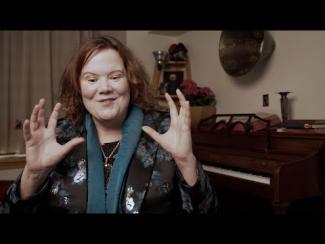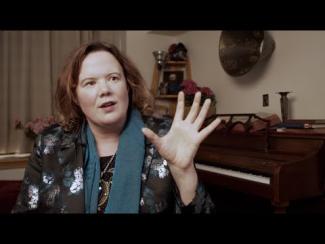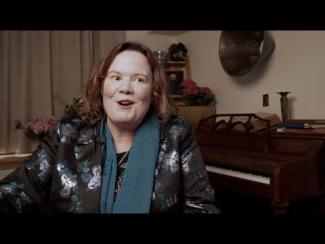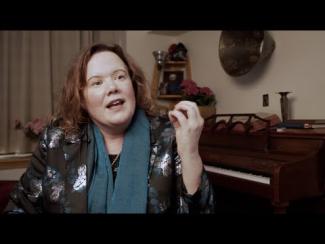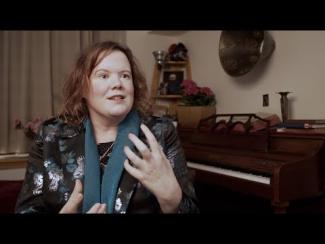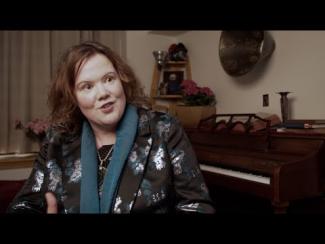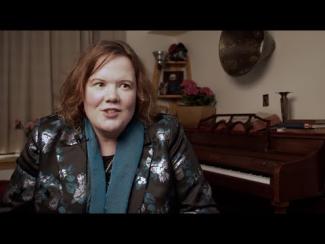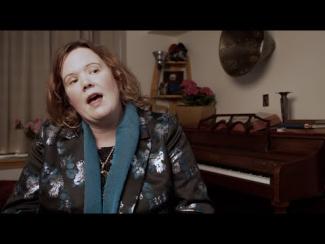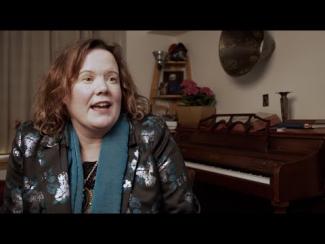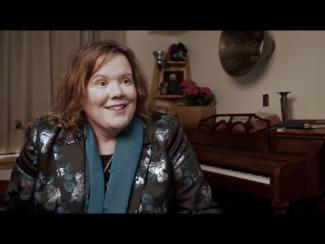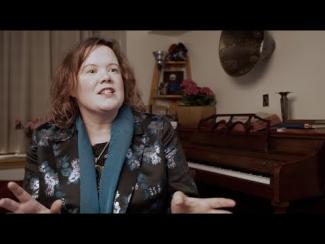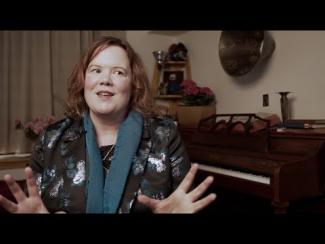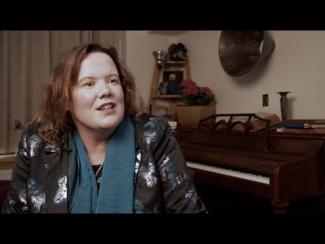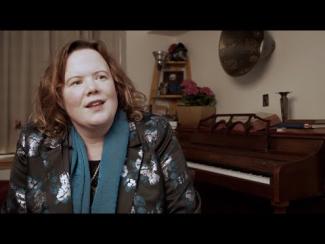The Yiddish Book Center's
Wexler Oral History Project
A growing collection of in-depth interviews with people of all ages and backgrounds, whose stories about the legacy and changing nature of Yiddish language and culture offer a rich and complex chronicle of Jewish identity.
Caraid O'Brien's Oral History
Caraid O'Brien, writer, performer, and director, was interviewed by Christa Whitney on May 8th, 2019 in New York, NY. Born in Ireland, she spent summers as a child with her grandparents in Galway, County Mayo, and the Aran Islands, where she was exposed to the Irish language and Irish storytellers. Caraid grew up in an Irish-American Catholic community. She attended Catholic schools, although her parents were not religious. She shares memories of an English and Drama teacher who became a mentor and her father sharing books by Irish writers. She was introduced to Jewish writers like Philip Roth, Bernard Malamud, Saul Bellow and Isaac Bashevis Singer in an American Literature class and noticed the similarities to the Irish literary sensibility. In college, Caraid happened upon a poster advertising a paid internship program at the Yiddish Book Center and was accepted in 1994. The interns studied the language and shelved books, and she remembers the intense feelings she developed for the Center. Next Caraid spent a year at the Hebrew University where she took advanced Yiddish literature classes. Caraid recalls her early interest in the theater and how performing made her feel more alive than anything else. After leaving Israel, she took a Yiddish theater class with Ruth Wisse, who strongly influenced her eventual path, in part by introducing her to "God of Vengeance," and to Luba Kadison, a former member of the Vilna Troupe. Caraid got a job creating a website on Yiddish theater at New York University and realized how little most people knew about its rich history. Caraid saw a poorly done version of "God of Vengeance" at the theater where she worked and was challenged to translate it herself. Her translation was eventually produced by the New Yiddish Rep. Caraid recently wrote a biography of Seymour Rexite and Miriam Kressyn, two stars of Yiddish theater and radio. Rexite became a good friend and taught her a tremendous amount about Yiddish musical theater just as Kadison had taught her about the literary theater. Much of the rest of the interview includes details of the lives of Kadison, her husband Joseph Buloff, Rexite, and Kressyn. She discusses the extraordinary impact of Yiddish theater and radio. Caraid explains how the fact that she was an actor who spoke Yiddish and loved Yiddish became a portal to interviewing these important artists. Caraid explores some of the reasons that Yiddish theater declined, such as the Holocaust and the establishment of the Israeli state, but she provides examples of how things are slowly turning around. She discusses her work translating four Sholem Asch plays, with help from a Yiddish Book Center translation fellowship. Caraid talks about how different it is to perform the same play in English vs Yiddish. She returns to the theme of the cultural and historical similarities between the Irish and the Jews. She believes that the best way to conquer a people is to take away their language. She feels that mounting Yiddish plays honors the artists and other talents who died before their time during the Holocaust.
This interview was conducted in English.
Caraid O'Brien was born in Galway, Ireland in 1974.

